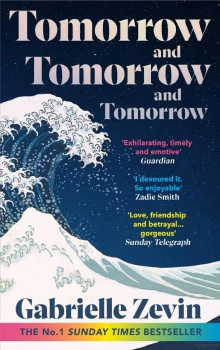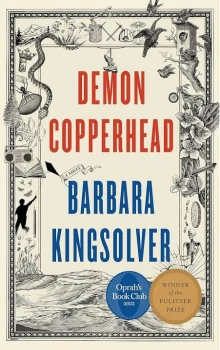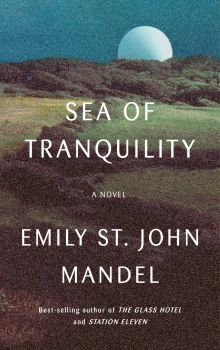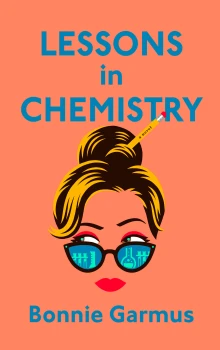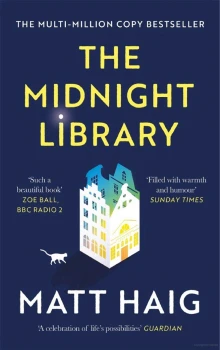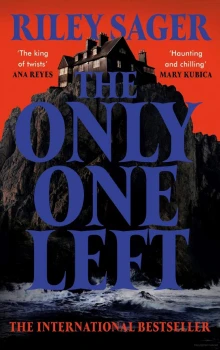5A
Although professional reviews did not entirely determine a game’s fortunes in 2000, the reviews for Both Sides ranged from mixed to bad:
“For those of you who have been eagerly awaiting the next release from Mazer/Green, let’s get this out of the way: Both Sides is not a game for fans of the delightful Ichigo series.”
“Some of the graphics in Myre Landing are among the most beautiful visuals I have ever encountered in a game, but unfortunately, Myre Landing shares space with the maudlin Mapletown.”
“While I enjoyed aspects of my play, the game is twice as long as it needs to be.”
“Both Sides suffers from a major identity crisis.”
“Ichigo fans should skip it.”
“…the game seems schizophrenic, as if it has been designed by two different people, and the play is unsatisfying.”
“The weather in Myre Landing is the best character in it.”
“The game’s ending is twice as clever as it needs to be.”
“We can all agree that we need more games with female MCs, but I didn’t like either Alice Ma or Rose the Mighty.”
“Ichigo is so different from Both Sides that it is hard to believe that the same set of designers made it. Maybe Ichigo is more Mazer’s game, and Both Sides more Green’s? Mazer, usually the more public of the team, was curiously absent during the promotion, while Sadie Green was definitely front and center. Maybe Mazer knew he had a flop on his hands?”
“Both Sides thinks it’s blowing your mind, but mainly what it induces is a minor headache.”
“I guess I was expected to feel emotion at the end of Both Sides, but the only thing I felt was the strong desire to throw my controller across the room.”
“There is so much technically right with Both Sides. Amazing graphics in the Myre Landing section, a haunting score by Zoe Cadogan, great sound design, a reasonably clever concept. So why did I hate it so much? Because it’s pretentious, it’s boring, and it’s not that fun. Better luck next time, Unfair.”
During its first week of release, Both Sides sold approximately one-fifth of the units Ichigo had sold in its first week. Marx was still optimistic. “It’s a great, special game,” Marx said, going into Sadie’s office. “Maybe it’ll take longer to find its audience?”
“People hate it,” Sadie said.
“They don’t hate it. They just don’t understand it. They expected Ichigo, and marketing and publicity didn’t do a good enough job telling them that it wasn’t going to be Ichigo,” Marx said. “And I haven’t given up yet. We’re going to buy more ads. We’re going to send out more copies to gamers and reviewers. The retailers are still excited about it and you guys. It isn’t over yet.”
“They hate it.” Sadie put her head on her desk. “I’ve got a headache.”
Marx bent down, and he lifted Sadie’s chin up. “Sadie, this isn’t over. Believe me.”
She did not. “It might be a migraine. I think I’ll go home for the day.”
“Okay. Take the afternoon. I’d come with you, but I’m having lunch with the boys,” Marx said. The boys were Antonio “Ant” Ruiz and Simon Freeman. While Sadie and Sam had made Both Sides, Marx had begun expanding Unfair’s producing efforts. The first team he’d brought on was Simon Freeman and Antonio Ruiz, who were both juniors at CalArts. The boys—as Marx called them—were making a Japanese-style RPG, inspired by their favorite game, Persona. The game took place in a high school, and each character could summon alternate versions of themselves through a complicated system of wormholes. Love Doppelgängers, its tentative title, was part romance and part science fiction. “Do you want to come? Sam said he was going to try to join.”
“No.” Sadie took the Dead Sea disk from the shelf. Dead Sea was her comfort game. She decided she’d go back to her apartment and kill zombies for a while.
Sadie left the office and walked home to Clownerina, who now seemed to be mocking her with his foot that wouldn’t kick. She drew the curtains, and she got into bed, without taking off her clothes or her shoes. She felt ashamed and foolish. She felt covered in failure and she felt sure that people could smell and see it on her. The failure was like a fine coating of ash, after a fire. But it wasn’t only on her skin; it was in her nose, in her mouth, in her lungs, in her molecules becoming part of her. She would never be rid of it.
Dov called her and she let it go to voicemail: “Critics are vile,” he said. “The game’s brilliant. The atmospheric effects on Oneiric are fucking great. Hope you’re doing okay. Call me.” Sadie listened to the message, and then she hit delete.
Sam called her, and she let that go to voicemail, too: “Sadie, pick up. We need to discuss this. This isn’t just happening to you.”
Delete.
Sadie fell asleep. About fifteen minutes later, someone was knocking on her apartment door. She could hear Sam’s muffled voice.
“Sadie, let me in. We have to talk,” Sam said.
Sadie didn’t answer.
“Sadie, come on. This is stupid. Talk to me. They mostly hated my side, not your side.”
Sadie still didn’t answer.
“Sadie, please. This is ridiculous. How long is this going to go on?”
Sadie got out of bed. She swung her front door open, and Sam walked in.
5B
“Say what you came to say,” Sadie said.
Sam sat down on Sadie’s couch. “I like your apartment building. I like that strange clown.”
“Can’t you leave me alone? I told Marx I’d be back to work tomorrow.”
“We tried to do something big,” Sam said. “We swung for the fences, and people didn’t like it. But I don’t care. I like what we did.”
“That’s easy for you to say,” Sadie said. “Everyone thinks it’s my game, and you supported me in my folly. They think your game, Ichigo, is the good game, and my game is the failure.”
“That isn’t true.”
“And maybe you thought Both Sides was going to flop, like that reviewer wrote. You let me go out and promote it. If you’d thought it was any good, you would have been front and center, wouldn’t you?”
Sam looked at Sadie. “Wait. What?”
She glared at him. “If you’d thought the game was good, you would have taken all the credit.” She paused. “Like you always do.”
Sam had been proud of her work and of his own. He’d stayed home because his foot was unreliable and pain management would have been difficult on the road. Sam opened his mouth to explain himself, but then he changed his mind. He went into her kitchen and poured himself a glass of water from her fridge.
“Help yourself,” she called, sarcastic and unrelenting. “What’s mine is yours. Except when it’s something no one else likes.”
“Come on, Sadie. You wanted to promote Both Sides.”
“I didn’t want to. I was willing to, because you wouldn’t. And it wasn’t easy. I’m not Sam Mazer. Strangers don’t naturally love me.”
“So I’m clear: It’s work when you do it. But it’s a vacation when I do it.”
“Yes, I think it’s easier for you.”
“Easier for me, or you could even call it something I’m good at. Something I’m good at that, maybe, you’re not good at,” Sam said.
“You’re saying the game flopped because I was bad at promoting it?” Sadie asked.
“No, of course not. I was trying to get you to admit that promoting Ichigo had been work. Stop looking for an argument. And for the record, I put everything I had into Mapletown. I’ve never put more of myself into a game.”
“Sam, you couldn’t have put everything into it. You were never here!”
“I worked my ass off,” Sam said. “And I’ve had a hard year, not that you ever asked. And what is wrong with you?”
“What do you mean?”
“Come on, Sadie. There are only two of us in this relationship. I want to know what is wrong with you. You’ve had some problem with me ever since we moved back to California.”
Sadie didn’t say anything. She shook her head.
“You’re a complete bitch all the time for no reason?”
“Screw you, Sam.”
“Say it,” Sam said. “It’s worse for me not knowing what it is.”
“I don’t care what’s worse for you,” Sadie said.
“That is so typical of you,” Sam said. “Sit there and suffer and don’t tell anyone what’s wrong.”
“You’re the one who does that,” Sadie said.
Sam banged his hand on Sadie’s coffee table. “What is it? Sadie, this is unfair. I have no idea what I’ve done. Clearly you think I’ve done something.”
“You have no idea?”
“No idea,” Sam said.
She took the Dead Sea CD out of her bag, and she flung it at him.
“What is this?” Sam asked.
“You tell me.”
He looked at the CD. “It’s Dov’s game. So?”
Sadie looked him in the eye. “You knew Dov had been my boyfriend, and that’s why you wanted me to go to him. You pretended like you didn’t.”
“So what if I knew? Ulysses was perfect for Ichigo. Sadie, this is crazy.”
“You already said that.”
“But it is crazy.”
“Stop calling me crazy. I thought you were my friend, but—”
“Sadie, I am your friend. You’re my best friend. Or I was until you decided two years ago that I wasn’t.”
“I thought you were my friend, but you’re a liar and a manipulator.”
“That isn’t true.”
“Isn’t it? You let everyone think you made Ichigo by yourself.”
“That isn’t true. I can’t control how they wrote the stories. I tell everyone you’re my partner. I tell everyone you’re brilliant.”
“You made us take the Opus deal because it was better for you.”
“You know why we took the Opus deal. We talked about the reasons.”
“I got stuck making the sequel. I got stuck doing the work while you went on a coronation tour.”
“That isn’t what happened.”
“But the worst thing you ever did to me was making me go to Dov for Ulysses.”
“I didn’t make you.”
“I know I could have built that engine, if I’d had more time. If you hadn’t pushed me to go to Dov, I wouldn’t have ended up in a relationship with him for three years. Do you know how much power he had over me and how hard it was to leave him?”
“It’s not my fault you got back with him. You can’t blame me for his actions or for yours. You can’t blame me for everything, but it seems like you do.”
“Admit it, Sam,” Sadie said. “You wanted Ulysses, and you didn’t care about me.”
“I care about you more than anyone,” Sam said. “But do I regret that I wanted you to get Ulysses? Do I regret that we got rich, and we get to make basically whatever we want now, even ill-conceived, pretentious art games like Both Sides? No, if Ulysses led to that, I would tell you to go to Dov and get Ulysses every time.”
“You think Both Sides is ill-conceived and pretentious?”
“I think it was pretty obvious that it was never going to be Ichigo, but it was what you wanted to do, so I supported you.”
“You’re saying it’s my fault?”
“No, I’m agreeing maybe it was more your idea than mine.”
“Ichigo was my idea, too. They’re ALL my ideas.”
“It’s nice that you see it that way, and if it helps you to make a villain out of me, go for it. But if I hadn’t pushed you to make Ichigo, where would you even be? You’d be one of a hundred programmers at EA working on Madden Football, if you were lucky. There aren’t that many girls in our field, you know. You’d probably be working for Dov. He’d probably have you handcuffed to your desk.”
Sadie’s eyes grew wide. She had never told him about the handcuffs. “How do you know about that?”
“Christ, Sadie, it was obvious. You had welts around your wrists for, like, two years. Marx and I used to—”
“You’re such an incredible asshole. Sometimes, I hate you.”
Sam realized he might have gone too far. “Sadie, I shouldn’t have said that last thing. Please. Do you remember that day in your old apartment at MIT? You said we would forgive each other, no matter what we did or what we said.”
“I didn’t know what I was agreeing to,” Sadie said. “I was young and stupid.”
“You’ve never been stupid.”
Sadie turned away from Sam. “Did you ever ask yourself why I was depressed?”
“I…I thought you’d broken up with your boyfriend. That’s what your roommate said, I think. I didn’t even know it was Dov.”
“Yet,” she said. “You didn’t know yet. But yes, it was Dov. But that’s not the reason I was depressed.” She pulled her head to her knees, her head buried under the habit of her hair. “Everyone thinks Ichigo is about you, but it’s really about me.”
“What do you mean?”
“Ichigo is about a boy who has been lost at sea, but it’s also about a mother who has lost her child. I never had a child, but I might have…” She turned away from him. She hadn’t told anyone about the abortion, not Dov, not Alice, not Freda, and even now, she struggled to say the word to Sam.
Sometimes, it seemed as if it had never happened. On a snowy day in January, she had taken the train to a clinic in Back Bay. They had told her to bring a friend, but she went alone. The whole thing had taken an hour; the procedure itself, ten minutes. The nurse had warned her about possible pain, but she had felt nothing. (She wouldn’t even end up bleeding as much as she did for a regular period.) She rode the T back home, and that night, she went out for drinks with her roommate. She had a White Russian, a rum and Coke, and a seven and seven, treacly college-girl drinks, and when she returned to her apartment, she passed out in her bed. At first, the roommate had thought she was hungover, but after Sadie had been in bed a week, the roommate finally demanded, “What’s wrong with you?”
“I broke up with Dov,” Sadie had lied.
“Good riddance.”
Sadie had been in bed for eleven days when Sam showed up in her room, demanding to talk about Solution.
“I felt so ashamed,” Sadie said. “And maybe that’s why I let him do the things he did.”
“Sadie.” Sam’s voice was filled with tenderness and love for her. “Sadie, why didn’t you ever say?”
“Because we never say anything real to each other. We play games, and we talk about games, and we talk about making games, and we don’t know each other at all.”
He was about to tell her that that was bullshit, that no two people had ever shared more of their lives together. That if she didn’t know him, no one knew him, and he might as well not exist. But at that moment, Sam started to feel the phantom pain. He hadn’t had an episode in several months, and he didn’t want to have one right now, in Sadie’s apartment. He didn’t want to be weak and vulnerable when she hated him this much. He had become practiced at sensing the signs of it: the tension in his jaw and his forehead, the hyperawareness of every scent (the ocean, Sadie’s hand cream, rotting fruit in a garbage can outside), the bile in his throat, the electric pulses up his spine, the throb, the ache, the pulse of the missing limb. He opened his backpack, and he took out a joint. He lit it and then he inhaled deeply.
Sadie observed him, suddenly bemused, as if she were watching an animal do something unexpected: an elephant paint a picture, a pig use a calculator.
“You don’t mind if I smoke in here?” Sam said.
“Do what you want,” Sadie said. She stood up to open the gauzy cotton curtains and the window behind them. The sun was setting over Clownerina. “Since when do you smoke pot?”
Sam inhaled and then he shrugged.
She returned to the couch, positioning herself as far away from him as she could. The tendrils of smoke reached across the sofa to her, like sepulchral fingers beckoning, and a pleasant haze began to fill the room, turning everything that had been sharp, soft-focused. The pot’s miasma was strong and spicy, and despite herself, Sadie could feel herself mellowing.
“What is this?” she asked.
“Some kind of sinsemilla,” he said. “I don’t remember the name.” He did remember the name. It was one of those puerile names that growers gave pot—Bugs Bunny, Magic Kitten, Rollergirl—as if the only reason anyone smoked pot was for childish hijinks. He didn’t want to say the name out loud in that moment.
She shifted closer to him and she reached for the joint, palm up. Sam looked at her outstretched hand, which he knew as well as any hand except his own—the precise pattern of the lines that made up the grid of her palm, the slim fingers with the purplish veins at the knuckles, the particular creamy olive hue of her skin, her delicate wrist, pinkish, with a penumbral callus that must have come from Dov, the white gold bracelet she wore that he knew had been a gift from Freda on her twelfth birthday. How could she honestly think he wouldn’t know about the handcuffs? He had spent hours sitting next to her, playing games and then making them, staring at her hands as her fingers flew across a keyboard or jabbed at a controller. Tell me I don’t know you, Sam thought. Tell me I don’t know you when I could draw both sides of this hand, your hand, from memory.
“Sam?” she said.
He passed her the joint.
